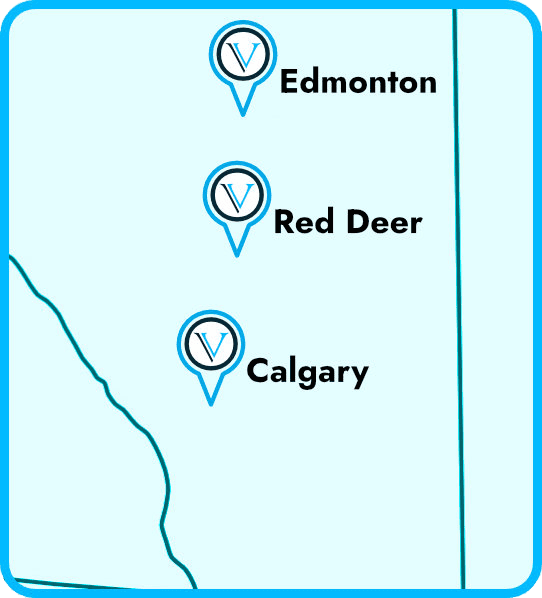
Since 2012, the principal legislation governing the administration of estates in Alberta has been the Wills and Succession Act.
This important document deals with a wide range of issues concerning wills, the rights of family members when there is no will, survivorship rules, and much more.
If you haven’t already done so, it’s important to review your estate plan to ensure that it takes the provisions of the Wills and Succession Act into account.
For people with no estate plan, it may be a good time to familiarize yourself with the main provisions in the Act and discuss your needs with an estate planning lawyer.
The main questions answered in the Act are detailed in this article.
Learn More → Considerations When Writing a Will in Alberta
What is the effect of a new marriage or cohabitation on a will?
Under the Act, a new marriage or Adult Interdependent Partner Relationship (AIP) does not automatically revoke a will. The will must explicitly state that it does.
An AIP is defined under a separate Act. It is where two people have signed an agreement, lived together in a relationship of interdependence for three years or more or have a child together.
What is the effect of a divorce or separation on a will?
Under the Wills and Succession Act, an ex-spouse or a former AIP is considered to have predeceased the testator (the maker of the will) unless the will explicitly states otherwise.
So, a former spouse or AIP cannot receive gifts left in the will, act as a personal representative or as a trustee of the will unless stated otherwise. An appointment as guardian of minor children will also be revoked.
Note that these rules only apply to a will once a divorce is complete. If the spouse does not leave a will, a separation of more than two years automatically disinherits the spouse or AIP in Alberta.
Note also that the rules, like all the provisions of the Wills and Succession Act, do not apply to beneficiary designations on RRSPs, RRIFs, TFSAs, pensions or life insurance policies. Those may need to be changed after a divorce or separation to avoid unintended outcomes.
How are intestate estates distributed in Alberta?
The Wills and Succession Act has redefined what happens to an estate in Alberta when no will is made by the deceased.
The entire estate goes to the surviving spouse or AIP, as it is presumed that the deceased intended to do that and the spouse or AIP will take care of any dependent children.
If, however, the deceased died without a will and is survived by a spouse/AIP and children from another relationship, the spouse/AIP receives a preferential share of (but not all of) the estate with the remainder passing to the deceased’s children.
The spouse or AIP will receive $150,000 or one-half of the net estate — whichever is greater. This applies provided that he/she had not been separated from the deceased for two years or more before the death or a court order has officially recognized the end of the relationship.
Learn More → Intestate: Dying Without a Will in Alberta?
What happens to the matrimonial home when an estate is distributed?
A surviving spouse or AIP has the right to stay in the family home for 90 days after the date of death — or longer with a court order — at the expense of the estate.
This applies whether the matrimonial home is owned, jointly owned with another person or rented.
What are dependents’ rights for support?
Under Albertan estate law, the dependents of a deceased person have a right to adequate financial provisions from the estate of the deceased or they can request the court to intervene if need be.
This right extends to the following individuals:
- A spouse
- An Adult Interdependent Partner
- A minor child
- An adult child who is physically or mentally disabled and cannot earn a living
- An adult child under the age of 22 who is in full-time education (if the deceased was supporting the child at the time of death)
- A minor grandchild or great-grandchild of the deceased if the deceased was acting as a parent
If the application is successful, the court can allocate a (greater) share of the estate to ensure adequate financial support.
How does an advance to a beneficiary affect estate distribution?
If a beneficiary received money or property from the deceased while the will-maker was alive, it may be claimed that this was an “advance” to a share of the estate rather than a gift, unless it was specifically stated as such.
This may result in the beneficiary’s share of the estate being reduced or the beneficiary having to repay the finances.
What are the survivorship rules in Alberta?
The Wills and Succession Act has clarified the rules of survivorship in Alberta.
If two people in a marriage or interdependent relationship die at around the same time and it cannot be determined who died first (such as in a fatal car accident), each is considered to have predeceased the other — unless the wills show a contrary intention.
This has major consequences for estate distribution. Namely, each person’s estate will go to his or her heirs rather than the estate of the other. Also, any property that the couple held jointly will become a “tenancy in common”. This means that one-half of the property will go to their respective estates rather than to the estate of the other.
What are a spouse’s rights to property from the estate?
The Matrimonial Property Act deals with matrimonial property on death. Under proposed legislation in the Wills and Succession Act (yet to be proclaimed), a surviving spouse would be able to claim his or her share of the matrimonial property from the deceased spouse’s estate.
Presently, only divorcing or separated spouses could make such a claim against the deceased’s estate.
There is “crossover” here as, under the Wills and Succession Act, a surviving spouse is entitled to receive all property given to him or her under the will of the deceased spouse, in addition to his/her claim for matrimonial property.
If you need help with avoiding unintended consequences when you make your will or any other estate administration matter, the experienced lawyers at Vest Estate Lawyers can help you.

We currently have three offices across Alberta — Edmonton, Calgary, and Red Deer. However, we serve the entire province of Alberta. We also have the infrastructure to work with any of our clients virtually — even the furthest regions of Alberta.
Call us toll-free at 1-877-448-3131 to get routed to the best office for you or contact us online to schedule an appointment.
We also have a dedicated intake form to help you get the ball rolling. Our intake team will review your specific case and advise you on the next steps to take and what to expect moving forward.
Our offices are generally open 8:30 a.m.—5:00 p.m., Mon—Fri.


Heather Tyminski
WILLS and ESTATES LAWYER
Heather Tyminski is a lawyer in the firm’s Calgary office with many years of experience practicing estate law.

